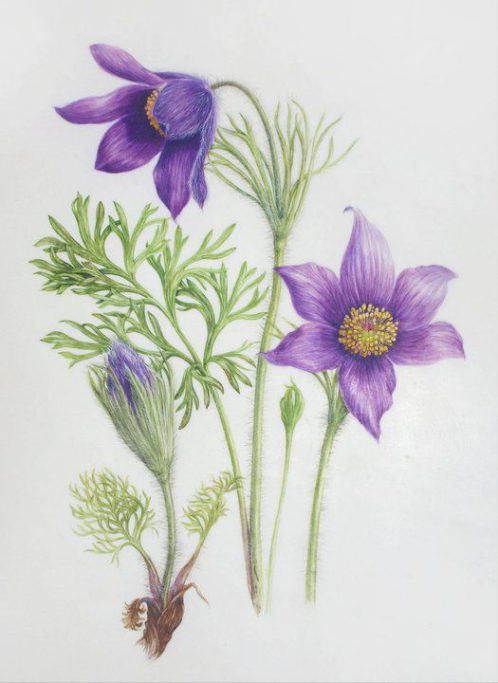Common pasqueflower Pulsatilla vulgaris has long ceased to be common in Europe. This beautiful perennial with silvery hairy stems and bell-shaped, purple or violet flowers is completely extinct in natural sites in Poland, and in Germany, despite strenuous protection and education of local communities, it is disappearing due to succession changes and robbing of wild populations. It would be advisable to introduce it back to natural sites in our country, as well as to increase its resources in the field collections of botanical gardens.
Conservative cultivation of the common pasqueflower is all the more difficult because under artificial conditions it hybridizes more than readily with other species and cultivars Pulsatilla. A better solution would be to identify genetically pure specimens of this taxon, and then multiply them by somatic embryogenesis.
Somatic embryogenesis is the process of creating plant embryos not from gametes and zygotes, but from vegetative cells of plants. This method is technically quite easy, but expensive and time-consuming. Therefore, it is used in commercial production of ornamental plants and in research, but not in commercial production of vegetables or cereals. For a number of species (including rapeseed, alfalfa, celery and spruce), the methodology for producing somatic embryos has been refined to the point that the embryos do not differ morphologically or genetically from natural - zygotic ones.
Conditions during somatic embryogenesis promote genetic transformations of plants both induced by researchers and involuntary. To prevent genetic transformations in the case of our common pasqueflowers, the size and composition of their genome were controlled. Size by flow cytometry, and mutations by ISSR markers. Our work confirms that with proper technique and rigorous genome control, explants P. vulgaris can be a valuable source of material for cryopreservation, artificial seed production and/or for producing progeny plants from regenerated seedlings. This makes it possible to use them to strengthen sites of low abundance or to restore declining ones.
This publication confirms the irreplaceable role of botanical gardens in collecting and making available for scientific research plant material of known provenance. This is especially important in the case of species that are either very rare or already extinct in a given country, as well as important for commercial horticulture and medicinal purposes, while readily interbreeding with other representatives of their genus like the common pasqueflower.
Publication:
Żabicka, J., Żabicki, P., Słomka, A., Jędrzejczyk-Korycińska, M., Nowak, T., Śliwinska, E., Kapler, A. & Kuta, E. (2021). Genotype-dependent mass somatic embryogenesis: a chance to recover extinct populations of Pulsatilla vulgaris Mill. Plant Cell, Tissue and Organ Culture (PCTOC), 1-11. https://link.springer.com/article/10.1007/s11240-021-02074-7
post
post
2021-04-30 13:01:13



